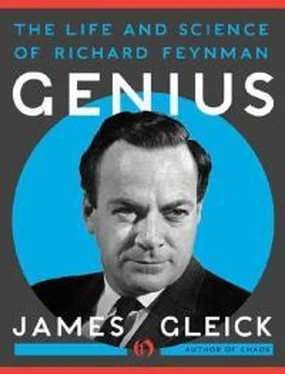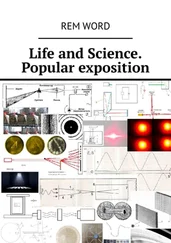Glashow, Sheldon. 1980. “Towards a Unified Field Theory: Threads in a Tapestry.” Science , 19 December, 1319.
——. 1988. Interactions: A Journey through the Mind of a Particle Physicist and the Matter of This World .
With Ben Bova. New York: Warner Books.
Gold, Thomas, ed. 1967. The Nature of Time . Ithaca, N.Y.: Cornel University Press.
Goldstine, Herman H. 1972. The Computer from Pascal to Von Neumann . Princeton: Princeton University Press.
Golovin, N. E. 1963. “The Creative Person in Science.” In Taylor and Frank 1963, 7.
Goodstein, David. 1989. “Richard P. Feynman, Teacher.”
Physics Today , February, 70.
Goodstein, Judith R. 1991. Millikan’s School: A History of the California Institute of Technology . New York:
Norton.
Gould, Stephen Jay. 1981. The Mismeasure of Man . New York: Norton.
——. 1983. “Losing the Edge.” In The Flamingo’s Smile .
New York: Norton.
Grattan, C. Hartley. 1933. “Thomas Alva Edison: An American
Symbol.” Scribner’s
Magazine ,
September, 151.
Greenberg, Daniel S. 1967. The Politics of Pure Science .
New York: New American Library.
Greenberger, Daniel M., and Overhauser, Albert W. 1980.
“The Role of Gravity in Quantum Theory.” Scientific American , May, 66.
Gregory, Bruce. 1988. Inventing Reality . New York: Wiley and Sons.
Groueff, Stephane. 1967. Manhattan Project: The Untold Story of the Making of the Atomic Bomb . Boston: Little, Brown.
Groves, Leslie. 1975. Now It Can Be Told . New York: Da Capo.
Grünbaum, Adolph. 1963. Philosophical Problems of Space and Time . New York: Knopf.
Hanson, Norwood Russel . 1963. The Concept of the Positron: A Philosophical Analysis . Cambridge: Cambridge University Press.
Harris, Theodore E. 1963. The Theory of Branching Processes . Englewood Cliffs, N.J.: Prentice-Hal .
Hartman, Paul. 1984. “The Cornel Physics Department:
Recol ections and a History of Sorts.” Typescript.
Cornel University.
Hawking, Stephen W. 1987. A Brief History of Time: From the Big Bang to Black Holes . New York: Bantam.
Hawkins, David; Truslow, Edith C; and Smith, Ralph Carlisle. 1983. Project Y: The Los Alamos Story .
Los Angeles: Tomash.
Heidegger, Martin. 1959. An Introduction to Metaphysics .
Translated by Ralph Manheim. New Haven, Conn.: Yale University Press.
Heilbron, J. L., and Seidel, Robert W. 1989. Lawrence and His Laboratory: A History of the Lawrence Berkeley Laboratory. Berkeley: University of California Press.
Heisenberg, Werner, ed. 1946. Cosmic Radiation: Fifteen Lectures . Translated by T. H. Johnson. New York: Dover.
——. 1971. Physics and Beyond . New York: Harper and Row.
Hempel, Carl G. 1965. Aspects of Scientific Explanation .
New York: The Free Press.
Herbert, Nick. 1985. Quantum Reality . Garden City, N.Y.: Anchor Press.
Hesse, Mary B. 1961. Forces and Fields: The Concept of Action at a Distance in the History of Physics .
London: Nelson.
Hewlett, Richard G., and Anderson, Jr., Oscar E. 1962. The New World, 1939/1946: A History of the United
States Atomic Energy Commission . Volume 1.
University Park, Pa.: Pennsylvania State University Press.
Hiley, B. J., and Peat, F. David. 1987. Quantum Implications: Essays in Honour of David Bohm .
London: Routledge and Kegan Paul.
Hil is, W. Daniel. 1989. “Richard Feynman and the Connection Machine.” Physics Today , February, 78.
Hofstadter, Douglas R. 1979. Gödel, Escher, Bach . New York: Basic Books.
——. 1985. Metamagical Themas . New York: Basic Books.
——. 1991. “Thinking about Thought.” Nature 349:378.
Holton, Gerald, ed. 1965. Science and Culture . Boston: Houghton Mifflin.
——. 1972. The Twentieth-Century Sciences: Studies in the Biography of Ideas . New York: Norton.
——. 1978. The Scientific Imagination: Case Studies .
Cambridge: Cambridge University Press.
——.
1988. Thematic Origins of Scientific Thought: Kepler to Einstein . Revised edition. Cambridge, Mass.: Harvard University Press.
Hood, Edwin Paxton. 1851. Genius and Industry: The Achievements of Mind Among the Cottages .
London: Partridge and Oakey.
Hudson, Liam, ed. 1970. The Ecology of Human Intel igence. London: Penguin.
Huxley, Thomas H. 1897. Discourses: Biological and Geological Essays . New York: Appleton.
Hyman, Anthony. 1982. Charles Babbage: Pioneer of the Computer . Oxford: Oxford University Press.
Infeld, Leopold. 1950. Albert Einstein: His Work and Influence on Our World . New York: Scribner.
Jaki, Stanley L. The Relevance of Physics . Chicago: University of Chicago Press.
Jackiw, Roman; Khuri, Nicola N.; Weinberg, Steven; and Witten, Edward, eds. 1983. Shelter Island II: Proceedings of the 1983 Shelter Island Conference on Quantum Field Theory and the Fundamental Problems of Physics . Cambridge, Mass.: MIT Press.
James, Wil iam. 1917. Selected Papers on Philosophy .
London: Dent.
Jammer, Max. 1966. The Conceptual Development of Quantum Mechanics . New York: McGraw-Hil .
——. 1974. The Philosophy of Quantum Mechanics: The Interpretations
of
Quantum
Mechanics
in
Historical Perspective . New York: Wiley and Sons.
Jeans, Sir James. 1943. Physics and Philosophy .
Cambridge: Cambridge University Press.
Jette, Eleanor. 1977. Inside Box 1663 . Los Alamos, N.M.: Los Alamos Historical Society.
Johnson, Charles W., and Jackson, Charles O. 1981. City Behind a Fence: Oak Ridge, Tennessee, 1942–
1946 . Knoxvil e: University of Tennessee.
1946 . Knoxvil e: University of Tennessee.
Jourdain, Philip E. B. 1913. The Principle of Least Action .
Chicago: Open Court.
Judson, Horace Freeland. 1979. The Eighth Day of Creation: The Makers of the Revolution in Biology . New York: Simon and Schuster.
Jungk, Robert. 1956. Brighter Than a Thousand Suns .
New York: Harcourt.
Jungnickel, Christa; and McCormmach, Russel . 1986. The Now Mighty Theoretical Physics . Chicago: University of Chicago Press.
Kac, Mark. 1985. Enigmas of Chance . New York: Harper and Row.
Kamen, M. D. 1985. Radiant Science, Dark Politics .
Berkeley: University of California Press.
Kargon, Robert H. 1977. “Temple to Science: Cooperative Research and the Birth of the California Institute of Technology.” Historical Studies in the Physical Sciences 8:3.
Kazin, Alfred. 1951. A Walker in the City . New York: Harcourt, Brace.
Kevles, Daniel. 1987. The Physicists: The History of a Scientific Community in Modern America .
Cambridge, Mass.: Harvard University Press.
——. 1990. “Cold War and Hot Physics: Science, Security, and the American State, 1945–56.” Historical Studies in the Physical Sciences 20:239.
Читать дальше












